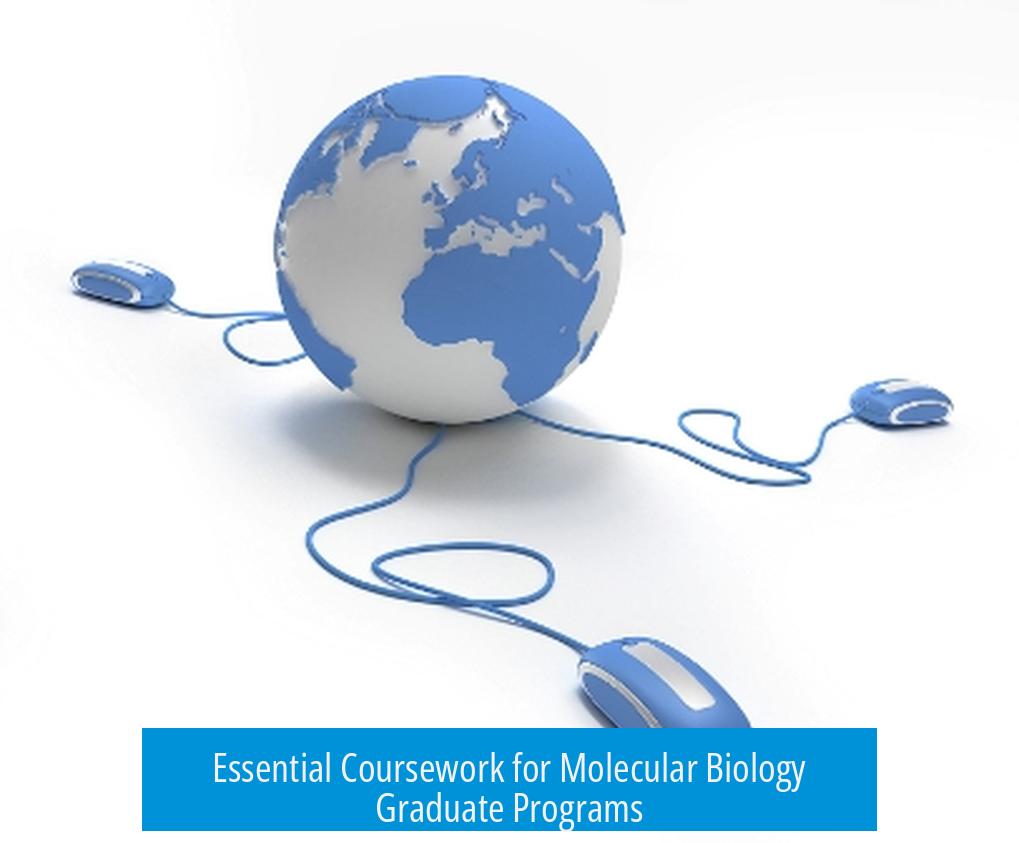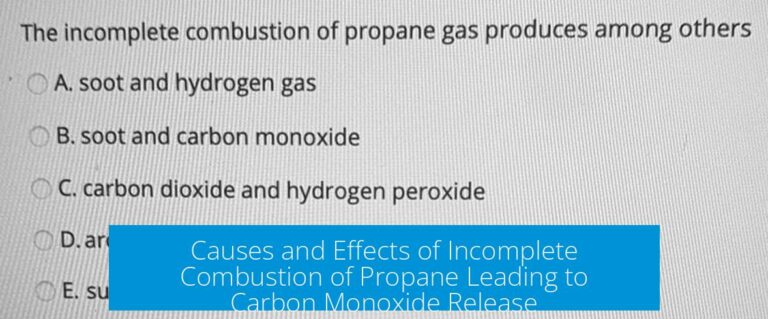Best Online Classes to Take to Get into a Molecular Biology Graduate Program

Online classes can help fulfill foundational coursework for molecular biology graduate programs, but strong lab and research experience are critical and usually require in-person participation.
Essential Coursework for Molecular Biology Graduate Programs

Graduate programs expect a solid base in chemistry, biology, physics, and mathematics. Key classes often include:
- General Chemistry with lab
- Organic Chemistry with lab
- Biology courses focusing on cell and molecular biology
- Physics with lab
- Calculus I (often Calculus II)
Most programs require laboratory components to complement these classes. Labs teach skills in experimental design, data collection, and critical analyses needed for graduate research.

Lab Courses: Online vs. In-Person
Most molecular biology graduate programs have strict requirements for in-person labs. Online courses may cover theoretical knowledge, but they typically cannot replace hands-on lab skills. While some universities offer top-tier online science courses (for example, UC Berkeley), in-person lab experience is a non-negotiable prerequisite for most programs.

Applicants lacking lab experience face significant disadvantages, as graduate research demands practical knowledge of lab techniques.
Research Experience is Crucial

Beyond coursework, programs highly value candidates with hands-on research experience. Spending at least one to two years working in a laboratory setting helps applicants:
- Develop experimental skills
- Understand lab protocols
- Contribute to scientific projects
This experience cannot be fully replaced by online courses. Exceptions exist for bioinformatics-focused tracks, where computational research may involve remote work. However, traditional molecular biology pathways expect physical lab experience before admission.

Recommendations
- Complete core science courses online if needed, preferably through accredited institutions with rigorous curricula.
- Prioritize gaining in-person lab and research experience before application.
- Consider programs offering hybrid models or certificate labs to supplement online theory.
- Engage in internships, summer research, or volunteer lab work to build credentials.
Key Takeaways
- Online classes can cover theory and prerequisites but rarely substitute for lab courses.
- Hands-on lab experience is essential to succeed in molecular biology graduate programs.
- Strong research background strengthens competitiveness.
- Calculus and physics with labs are commonly required.
- Look for hybrid or local lab opportunities alongside online coursework.
Best Online Classes to Take to Set Yourself Up for Getting into a Molecular Biology Graduate Program
Wondering what online classes will boost your chances of getting into a molecular biology graduate program? The short answer: foundational science courses with lab components are key, but you’ll need more than just video lectures. Let’s dive deeper into which classes to target and why, all while unpacking the fine print you might have missed.
If you’re aiming to join the next molecular biology grads club, you need a solid base in chemistry, physics, and math. But here is the kicker: these courses usually require associated labs, which most graduate programs demand in person. Yep, those hands-on sessions matter—not just for show, but because they teach you the real deal in experimental design and lab techniques. Skipping this could seriously put you at a disadvantage.
Navigating Coursework Requirements: Labs, Calculus, and More
Start with the essentials. Chemistry and physics are non-negotiable. However, these classes often come bundled with lab sections. Passing a chemistry lecture without that lab can be like trying to bake a cake without heat: theoretical, but incomplete.
Next up, maths. Calculus 1 is usually required. Some programs expect you to have completed Calculus 2, too. Nothing screams “I can handle grad school” like a strong grasp of calculus—especially when it’s applied to biochem pathways or molecular kinetics.
For example, one applicant recalls: “I finished my online calculus 1 and 2 and basic chemistry classes with labs at a local community college. The key was supplementing with in-person lab work. That experience made my grad school application stand out.”
The Ever-Persistent Debate: Online Labs vs. In-Person Labs
Here comes the spicy part. Many forums and advisors wave off the idea of completing lab courses online for molecular biology grad school readiness. They argue that most programs require hands-on, in-person labs. And science isn’t just about memorizing formulas or watching experiments on YouTube—it’s about actually doing them.
But wait, don’t pack your bags just yet. Some online programs, like UC Berkeley’s online science courses, offer high-quality instruction that can help you clear prerequisites. These courses often prepare you well on the theory side. Yet, most agree you need to find a way to get physical lab experience.
“Don’t listen to the naysayers calling online labs useless. You can absolutely earn your science prerequisites online. Just make sure to supplement with real lab hours somewhere.”
So, What’s the Workaround?
Taking online classes for lecture components is a smart way to save time and money. Complete your general chemistry, physics, biology, and math prerequisites online first. Then, either through local community colleges, summer programs, or research internships, gain actual lab experience.
| Course Type | Can it be done online? | Why it matters |
|---|---|---|
| General Chemistry (with lab) | Theory online is fine. Labs require in-person. | Hands-on skills in titrations, molecular modeling, spectroscopy. |
| Physics (with lab) | Theory online possible; lab must be in-person. | Experimental design, instruments handling, data collection. |
| Calculus 1 & 2 | Can be done fully online. | Mathematical modeling of biological processes. |
| Biology & Molecular Biology | Lecture online possible; labs usually in person. | Cellular processes, DNA replication, PCR techniques. |
Don’t Forget Research Experience
Molecular biology grad programs don’t just want book scholars; they want lab warriors. Having a couple of years of research experience is critical. It shows you can apply your knowledge, troubleshoot experiments, analyze data, and contribute original insights. And sorry, but this is mostly an in-person gig unless you are eyeing bioinformatics specifically.
Think of research as the golden ticket. You can excel in online classes all you want, but without research chops, your application might barely make the cut. Some applicants get around this by volunteering in labs while completing online courses. This hybrid approach builds technical skills and strengthens applications.
Tips for Online Class Takers
- Choose accredited programs. Look for reputable schools like UC Berkeley’s online offerings.
- Confirm lab requirements. If courses promise “virtual labs,” ask how well these translate to real-world skills.
- Plan to complement online learning with in-person lab work. This might mean local college courses or summer internships.
- Focus on research. Seek hands-on opportunities in molecular biology labs, even as a volunteer.
- Brush up on math. Don’t skip calculus or statistics—these are vital.
Questions time: Have you found a local lab that offers part-time experiences? What online science classes have helped you the most? Share your experiences to help the next bio grad hopeful! After all, molecular biology is a puzzle best solved one experiment at a time.
Ultimately, the best online classes for molecular biology grad programs are those covering chemistry, physics, biology, and math theory—you can definitely complete those online. But the real edge comes from pairing these with hands-on lab experience and research. This combo not only sets you apart but prepares you for the rigors of graduate research life.
Ready to hit “enroll” on those online courses? Just remember: *textbook knowledge isn’t enough*. Embrace the practical side too. That’s how you turn from student into scientist.
What online courses should I prioritize to fulfill prerequisites for molecular biology grad programs?
Focus on foundational courses like general chemistry, organic chemistry, physics, and calculus. These often have labs, so check if you can complete those in person. Many grad programs require both lecture and lab experience.
Can online classes replace lab work required for molecular biology programs?
Most graduate programs expect hands-on lab experience. Online courses rarely provide real lab work. You should plan to gain lab skills through local institutions or research positions.
Is it possible to complete all molecular biology prerequisites online?
You can finish some lecture courses online, such as calculus and general chemistry. However, labs and research are best done in person. For research experience, in-person work is essential unless focusing on bioinformatics.
How important is research experience before applying for a molecular biology graduate program?
Strong research experience is crucial. It typically requires a couple of years working in a lab environment. This hands-on experience helps you learn experimental design and lab techniques.
Are there reputable online science programs that prepare students for graduate studies?
Yes, some universities offer quality online programs for science prerequisites. For example, UC Berkeley has top online science courses. But supplementing with in-person labs is necessary for molecular biology.





Leave a Comment